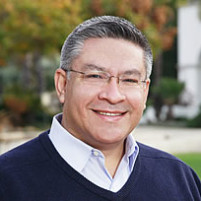Making progress on lowering costs and making communities safer
August 3, 2022

Congressman Salud Carbajal
Opinion by Congressman Salud Carbajal
A lot has happened in Washington these past few weeks, so I wanted to take a moment to share a short update. My colleagues and I have been working to curb inflation and bring down costs, make our communities safer, and help our veterans and people experiencing homelessness.
Bringing down the cost of cars and computers
Supply chain disruptions have caused a shortage of semiconductors and other computer chips in the U.S., causing prices of many household goods—from cars to everyday appliances—to skyrocket.
This is largely because, despite the fact that we pioneered the microchip, the United States relies on foreign countries for nearly 90% of our semiconductors now—making us vulnerable to global shortages and disruptions.
This past week, I helped send the CHIPS and Science Act to President Joe Biden’s desk to become law. This landmark bill will help bring semiconductor manufacturing back to America, create thousands of new hi-tech jobs, and invest in research and development of more cutting-edge technology.
Getting weapons of war off our streets
As a veteran of the United States Marine Corps, I’ve seen firsthand the destruction that assault rifles are capable of inflicting.
They are weapons of war, and they have no place in our communities or on our streets.
Last week, I voted to reimplement a ban on the sale, import, transfer, or manufacturing of assault weapons to make our communities safer and crack down on the weapon of choice for many criminals and mass shooters. I’ve co-sponsored this measure since my first year in Congress, and I’m pleased to see it finally pass the House.
This bill is the first ban on assault weapons since the 1994 Assault Weapons Ban, which expired in 2004. Researchers estimate that if the assault weapons ban had been kept in place, there would have been 70% fewer mass shootings over the past two decades.
This measure would build on the commonsense gun safety measure we got signed into law last month, including the bill I wrote to expand and improve the use of red flag laws nationwide.
Expanding use of a Central Coast homelessness solution
In the early 2000s, the Central Coast pioneered the nation’s first ‘safe parking program’, which provides people experiencing homelessness and are living in their vehicle with a designated place to park, as well as sanitary facilities and other assistance to help them get back on their feet.
Since coming to Congress, I’ve shared the story of this successful program as part of a comprehensive strategy to tackle the housing and homelessness crisis in California and across the country.
Last week, my bill—the Naomi Schwartz Safe Parking Program Act—was approved by a House committee—marking the first time Congress has taken a step toward opening federal funds to support local communities that want to implement these programs.
Tackling climate change here at home, fighting drought and wildfires
In California, catastrophic and year-round fire seasons and historic drought are two of the most devastating impacts of the climate crisis. We see these impacts every single day, including just this week as we lost multiple Californians to the McKinney Fire, our largest so far this year.
The House recently passed the Wildfire Response and Drought Resiliency Act, which will strengthen our electrical grids against extreme weather and natural disasters, improve our response to wildfires and drought, and provide assistance to families, communities, and businesses on the Central Coast when a disaster does strike.
These investments will build on the billions of dollars I helped secure for wildfire and drought response through our Bipartisan Infrastructure Law.






The comments below represent the opinion of the writer and do not represent the views or policies of CalCoastNews.com. Please address the Policies, events and arguments, not the person. Constructive debate is good; mockery, taunting, and name calling is not. Comment Guidelines